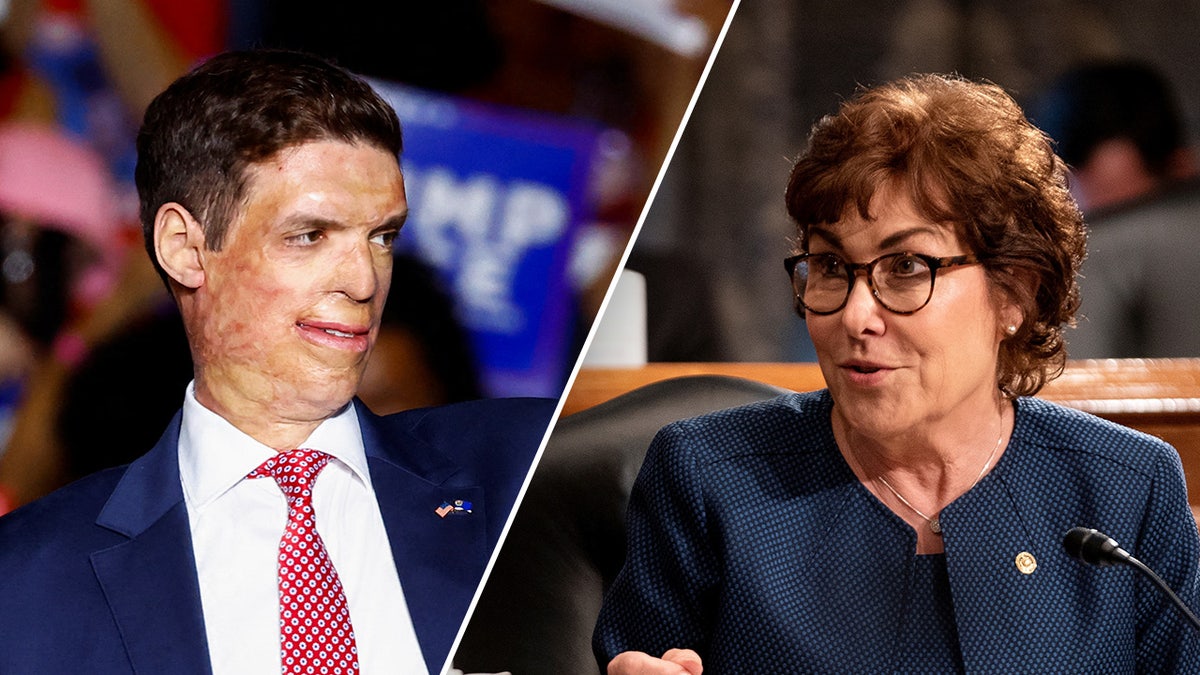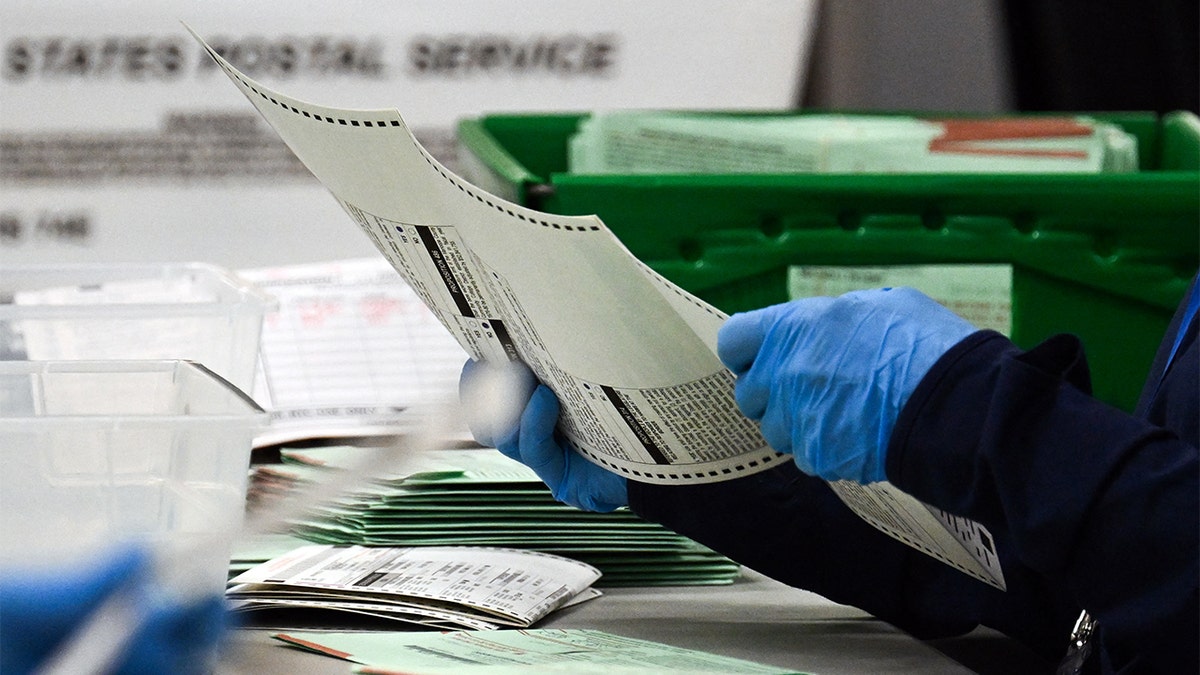Three days after Election Day on Nov. 5, the U.S. Senate races in the western states of Arizona and Nevada remain undecided.
Democratic candidates in both races have maintained a slight lead, offering hope for Democratic leader Chuck Schumer that his incoming minority might not shrink further. Republicans have flipped four senate seats so far and are set to start next year in the majority.
As of Friday morning, incumbent Sen. Jacky Rosen, D-Nev., leads her Republican challenger Ret. Army Capt. Sam Brown by more than 17,500 votes, or 1.2 percentage points. The deadline for mail-in ballots to arrive and be counted in Nevada is Saturday. With tens of thousands of ballots potentially outstanding, The Associated Press said on Thursday that the race is still too close to call.
So far, Rosen has 665,840 votes, or 47.76%. Brown has earned 648,292 votes, or 46.50%. Nearly 96% of Nevada precincts have reported their results.
PA SEN-ELECT MCCORMICK THANKS CASEY FAMILY FOR DECADES OF SERVICE AS DEMOCRAT DECLINES TO CONCEDE

Republican Ret. Army Capt. Sam Brown is challenging incumbent Sen. Jacky Rosen, D-Nev. for her Senate seat. (Reuters)
“There are still tens of thousands of uncounted ballots in the race for U.S. Senate, and the candidates are separated by less than one percent,” the Brown campaign said on Thursday. “There are also thousands of ballots which need to be cured. Sam Brown is committed to ensuring every legally cast, valid vote is counted.”
On Wednesday, Rosen said, “We feel good about the results we’re seeing, but there are still thousands of votes to be counted. Our democracy takes time, and I’m confident that we will win as more votes come in.”
REPUBLICANS WITHIN STRIKING DISTANCE OF HOUSE MAJORITY AS KEY RACES REMAIN TOO CLOSE TO CALL

Kari Lake and Ruben Gallego are competing for the open Senate seat in Arizona. (Reuters)
In neighboring Arizona, only 76.05% of precincts are reporting. Democratic Rep. Ruben Gallego, a Marine, currently leads Republican Kari Lake, a former TV news anchor, by more than 43,000 votes. The winner of this contest will succeed retiring Sen. Kyrsten Sinema, an independent who formerly was a Democrat. She left the party after clashing with its far-left element and decided against running for re-election as an independent when it became clear there was no path for her to do so.
The Arizona results are pouring in slowly, mostly because of how the state counts votes and the complexity of this year’s ballot. The delays were expected to be most pronounced in Maricopa County, the state’s largest county.

An election worker removes a ballot from an envelope to count and inspect the pages inside the Maricopa County Tabulation and Election Center (MCTEC) on Election Day, Nov. 5, 2024, in Phoenix, Arizona. Pairs of election workers from different political parties open mail-in ballot envelopes containing voted ballots after they have completed signature verification. (PATRICK T. FALLON/AFP via Getty Images)
“For the first time since 2006 here in Maricopa County, we have a two-page ballot, and we have races on both sides of those,” Maricopa County Supervisor Bill Gates told Fox 10 Phoenix last month. “We’re talking about four different sides of contests, seventy-nine contests on average. We anticipate that it will take people a little bit longer.”
Officials said a GOP-backed state law that adds extra steps to verify ballots might also cause delays.
The law requires poll workers to wait for the polls to close before counting begins. Then, all green envelope ballots that were dropped off need to be hand counted before they are delivered to the elections center, where the signatures are verified, and the votes are counted.
If the election office finds an error on a voter’s ballot, the voter is permitted five days to fix it. Election workers say it could take up to two weeks for every ballot to be cured and counted.
Mail ballots also need to be scanned, sorted and signature-verified before they can be counted. And voters may return mail ballots at any time before polls close on Election Day.
CLICK HERE TO GET THE FOX NEWS APP
“The most important thing you can be doing for the next few days is helping [Turning Point Action] cure these ballots and make sure every vote counts in Arizona,” Lake posted on X on Thursday.
The AP reported there are still hundred of thousands of ballots left to count in Arizona, including nearly half a million in Maricopa County. Officials are currently counting early votes that arrived in October. Until more ballots are counted, the race remains too early to call.



